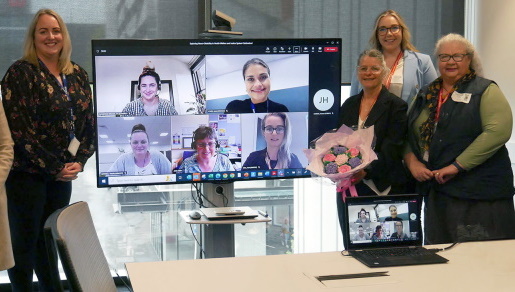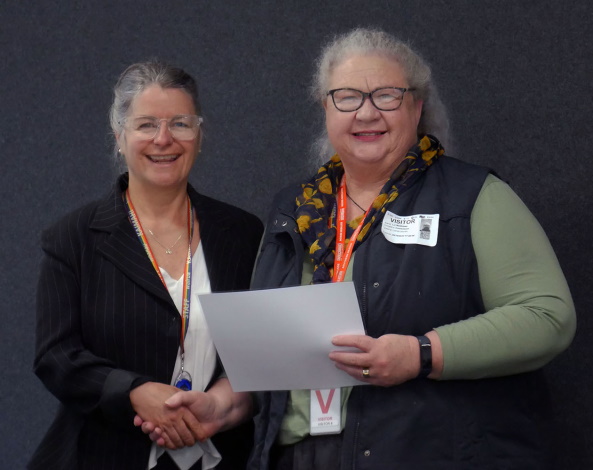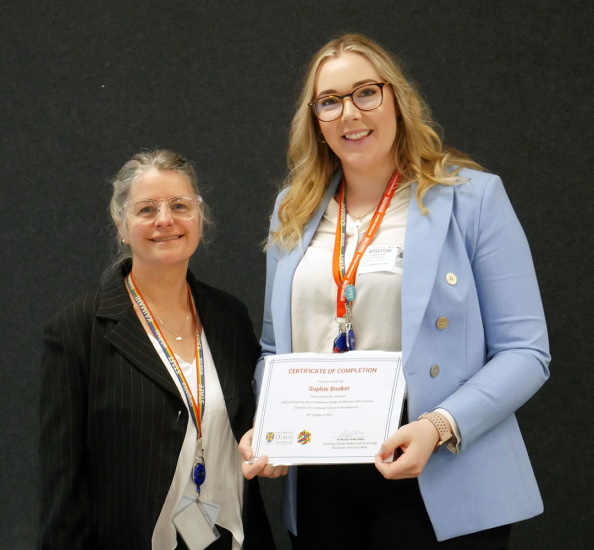 A group of Southern Region staff are championing the use of more neuro-informed practice, following their graduation from an Otago University course, SOCI404: Exploring Neuro-Disability in Health, Welfare and Justice Systems.
A group of Southern Region staff are championing the use of more neuro-informed practice, following their graduation from an Otago University course, SOCI404: Exploring Neuro-Disability in Health, Welfare and Justice Systems.
Te Mana Wāhine Change Lead Polly Cunningham says the graduates worked extremely hard, studying while working, to grow their knowledge in this space to share with their teams and the wider Department.
“It was wonderful to celebrate the achievements of our kaimahi (staff) at a certificate presentation, where the group reflected on their experience and their managers heard about potential ideas to improve neuro-diverse practice at our community and prison sites,” says Polly.
Designed to examine outcomes for people with neuro-disabilities like Foetal Alcohol Spectrum Disorders (FASD), Attention Deficit Hyperactivity Disorder (ADHD) and Autism Spectrum Disorder (ASD), the course helped the group understand what neuro-disability and neuro-diversity are, the impact these disabilities have on individuals, and what success could look like for these people within Ara Poutama Aotearoa.
“Neuro-divergent and neuro-disabled people are often marginalised and ‘unseen’, but if we have the tools to support these people, they can flourish and live as good a life as anyone else in Aotearoa,” says Professor Anita Gibbs. “Ara Poutama Aotearoa should be really proud of the achievements of Toni, Sophie, Roz, and Liz, who are already using and sharing their learnings to improve the outcomes for these people.”
This includes Sophie adjusting her way of writing PAC reports (Provision of Advice to the Courts) for people with a neuro-disability or neuro-diversity.
“With my learning, I was able to drill down and explore how one man’s neuro-disability had led to his re-offending again, despite perfect reporting, which gained really positive feedback from the judiciary. This kind of learning helps us support these people through sentence, knowing more about what kind of barriers are likely to come up,” she says.
Liz remembered having a similar experience, when a man’s inability to complete a programme was regarded as a failure, but was in fact linked to his neuro-divergent needs.
“After working with him, it became clear he wouldn't have had the capacity to engage with this programme or take on learnings, but that was counted against him in sentencing. Knowing more about people’s neuro-divergency or disability is key to helping us develop their reintegration pathway and new ways of working. We can reframe our responses to get different outcomes,” says Liz.
“I’m so grateful to have taken this course,” says Liz. “This is the start of our journey around how we can work with our unique clientele differently, achieving better outcomes with and for them.”



